Stormont talks: Miracle needed to restore executive by deadline, DUP says
- Published
- comments
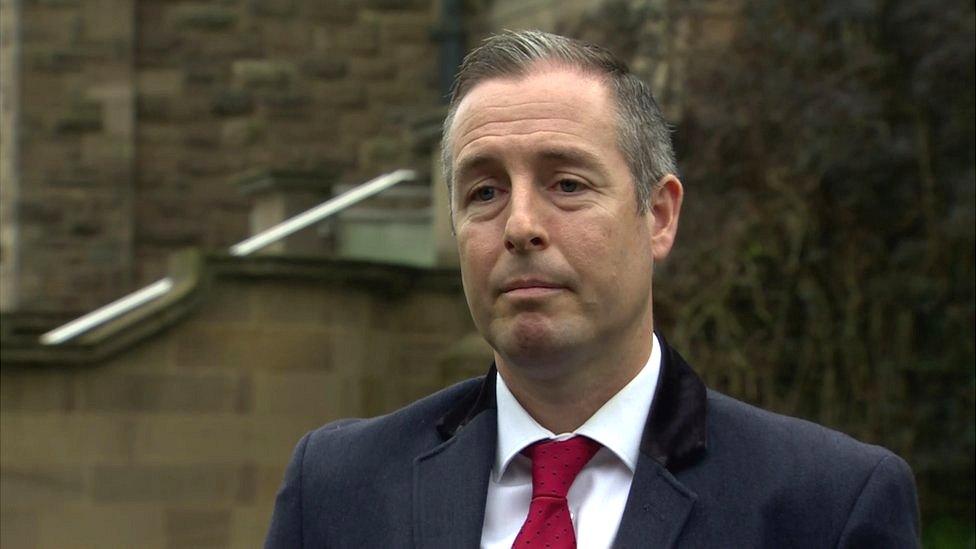
Paul Givan says another Stormont election will not solve any problems
It would take a miracle for a Stormont executive to be restored by next week's deadline, a senior Democratic Unionist Party (DUP) politician has said.
The comment came from Paul Givan, who resigned as first minister in February.
Following the resignation of Liz Truss, the NIO reiterated that if an executive is not formed by 28 October, Chris Heaton-Harris will "come under a legal duty" to call an election.
The Electoral Office said it would be expected to happen on 15 December.
Mr Givan was speaking after he met with the Head of the Northern Ireland Civil Service Jayne Brady, before the resignation of Liz Truss as prime minister.
The five largest parties at Stormont have been holding regular meetings in recent months with Ms Brady about the financial situation that departments are facing.
In the face of political paralysis it will be her staff who could be left in charge of Stormont's purse strings.
Last week Finance Minister Conor Murphy warned that Stormont was facing a £660m overspend unless action was taken.
Chris Heaton-Harris says his pledge to call another Stormont election should not be a surprise
Mr Givan said his party wanted to see the political institutions at Stormont back up and running but it would not re-enter government until changes are made to the Northern Ireland Protocol.
The Stormont Executive has not fully functioned since February when the DUP withdrew him from the office of first minister in protest over the protocol, the post-Brexit trade arrangement for Northern Ireland.
The last assembly election took place on 5 May and resulted in Sinn Féin becoming the largest party for the first time.
After that election, the DUP returned as the second-largest party and refused to re-enter government.
Talks between the UK and EU have resumed in an attempt to resolve the protocol issue but there is no sign of an imminent deal.
Mr Givan said chaos at Westminster was "contaminating the politics of trying to get a deal with the EU".
He said it was "not for the DUP to get the government off the hook" and he insisted his party would welcome another assembly election.
"But will it solve the problems? No, it won't," he added.
'Window of opportunity closed'
Sinn Féin vice-president Michelle O'Neill said it "looks like we're headed" towards another election at Stormont.
She criticised that and said the situation facing Northern Ireland departments in the coming days would be "bleak" if an executive was not restored.
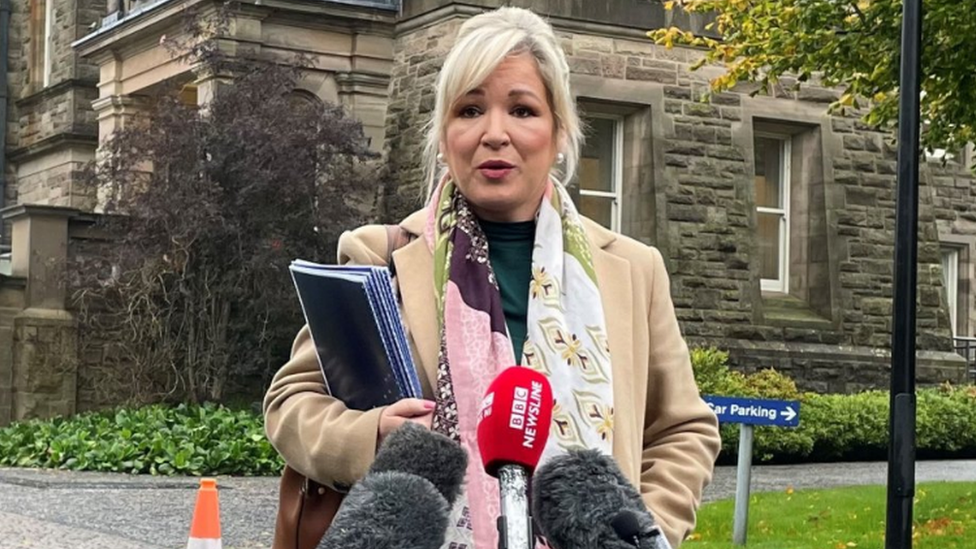
Michelle O'Neill says the situation facing Stormont departments in the coming days will be bleak
"It's madness - I regret the fact that people here are being held to ransom," she said.
Alliance Party leader Naomi Long said she believed the "window of opportunity" to restore power-sharing before 28 October had closed.
She added that she had put it to the DUP that the "onus was on them to get real".
"The government is in survival mode and has bigger problems than what's happening in Northern Ireland right now," she said.
Ulster Unionist leader Doug Beattie said there was a clear "elephant in the room" to getting devolution back.
"We're going to have an election and it's chaos at Westminster," he added.
"The lights are on but nobody is home, nobody's leading, nobody's governing.
"All of that will have an effect on us here."
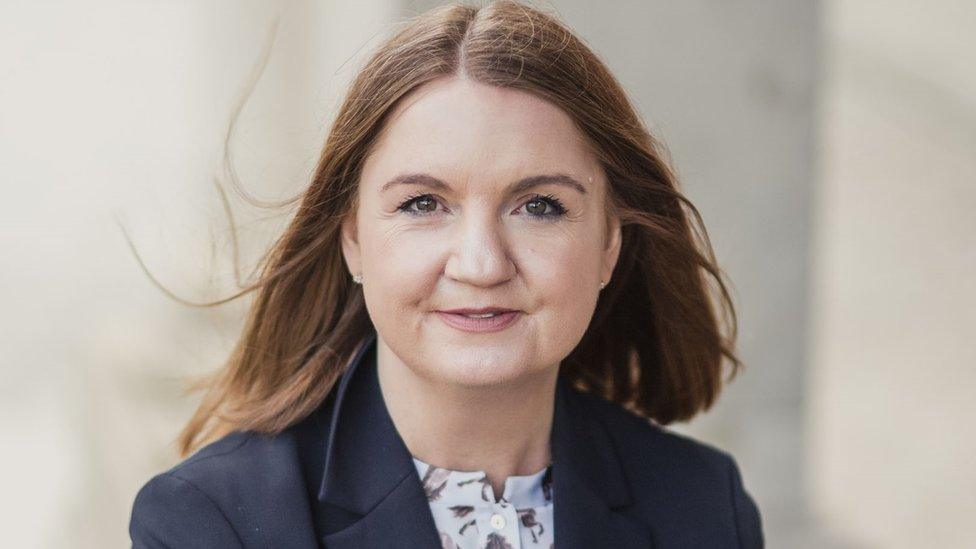
Jayne Brady was put in charge of the Northern Ireland Civil Service in June last year
Mr Heaton-Harris said talks with the EU about the Northern Ireland Protocol were continuing but that should not prevent the immediate restoration of a Stormont executive.
Another election is expected to cost about £6.5m and would have to come from funding already provided to Stormont, according to Northern Ireland's chief electoral officer Virginia McVea.
On Wednesday, Mr Heaton-Harris rejected suggestions that another election would not lead to any changes and he defended how much it could cost as a "down payment for democracy".
He insisted that elections were "never a waste of time and money".
- Published19 October 2022
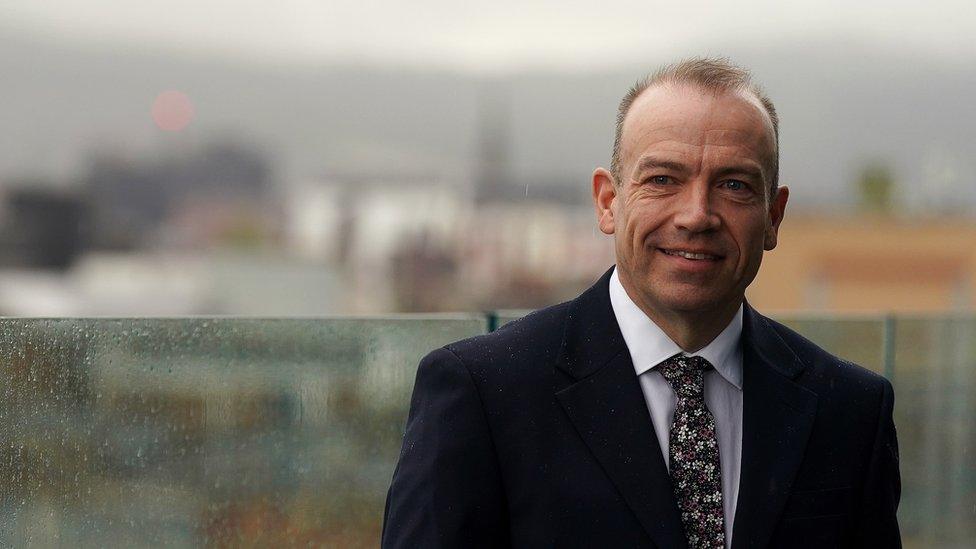
- Published18 October 2022

- Published11 October 2022
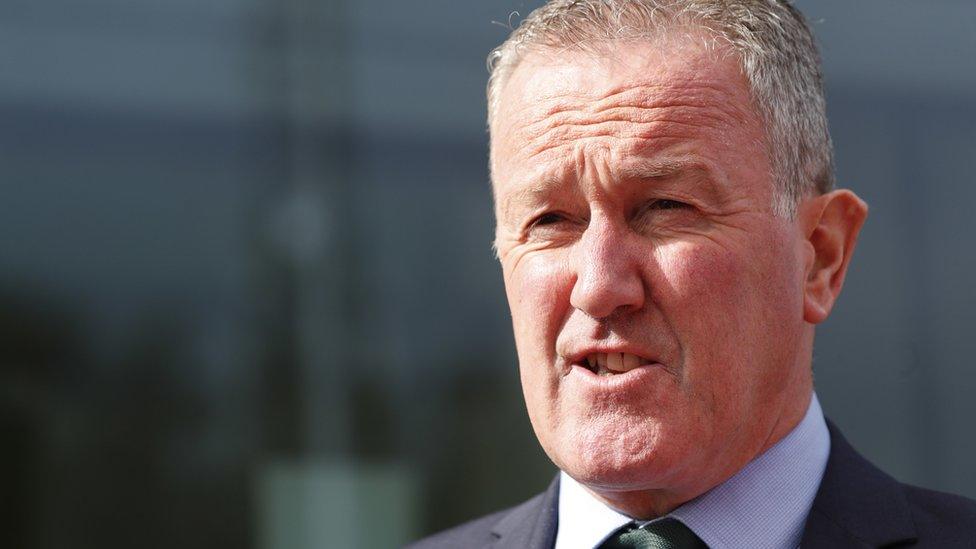
- Published10 June 2021
